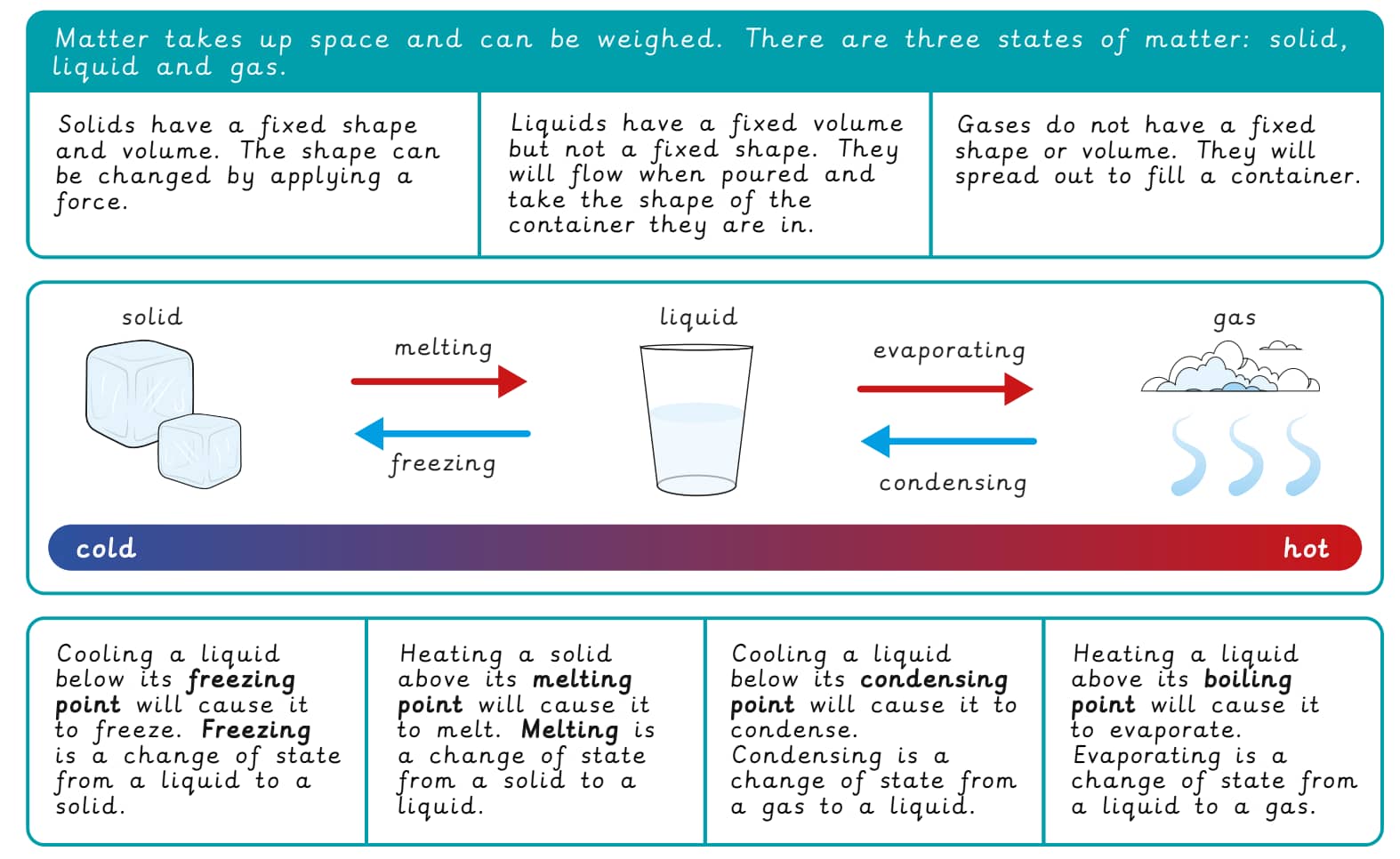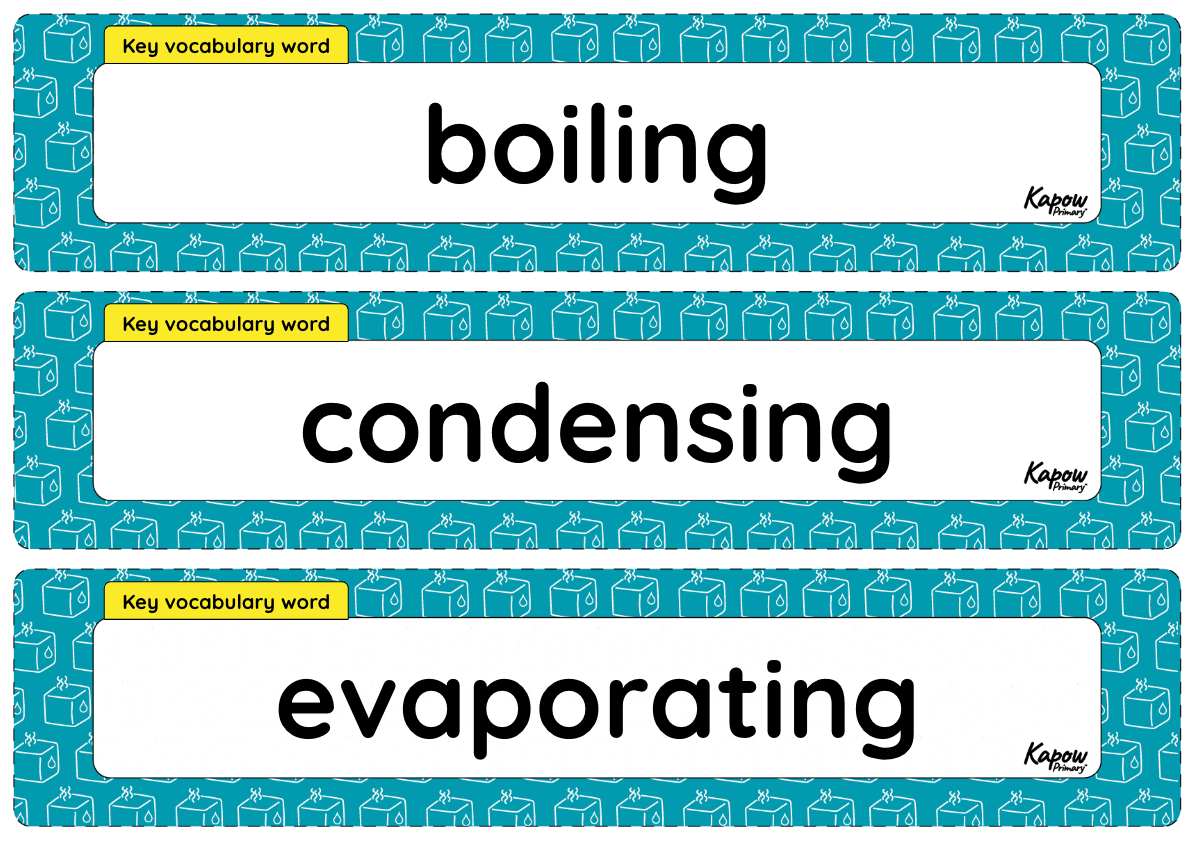Y3/4 (B): Materials: States of matter
Exploring states of matter and changes of state.
New statutory RSHE guidance is here. We’re creating our brand new RSE & PSHE scheme ready for September 2026. Learn more
Unit outcomes
Pupils who are secure will be able to:
- Identify solids, liquids and gases using their properties.
- Describe melting, freezing, condensing and evaporating.
- Describe the different stages of the water cycle.
- Describe how temperature affects the rate of evaporation and, therefore, the water cycle.
When working scientifically, pupils who are secure will be able to:
- Ask relevant questions.
- Use results to draw simple conclusions.
- Use thermometers to take accurate measurements.
- Make predictions for new values.
- Record findings using labelled diagrams.
- Research using more than one source.
Please note that Kapow Primary Science lessons are designed to be 1 hour and 30 minutes long to reflect the requirements of a core subject.
Suggested prior learning
Y1/2 (B): Materials: Everyday materials
Get startedLessons
Y3/4 (B): Lesson 1: Solids
Knowledge
- To identify solids using their properties.
Working scientifically
- To ask relevant questions about the properties of solids.
Y3/4 (B): Lesson 2: Liquids and gases
Knowledge
- To identify liquids and gases using their properties.
Working scientifically
- To use results to draw simple conclusions about the properties of liquids.
Y3/4 (B): Lesson 3: Melting and freezing
Knowledge
- To describe melting and freezing.
Working scientifically
- To use thermometers to take accurate measurements before and after melting.
Y3/4 (B): Lesson 4: Condensing and evaporating
Knowledge
- To describe condensing and evaporating.
Working scientifically
- To make predictions for new values about evaporation rates.
Y3/4 (B): Lesson 5: The water cycle
Knowledge
- To describe the different stages of the water cycle.
Working scientifically
- To record the stages of the water cycle using a labelled diagram.
Y3/4 (B): Lesson 6: Climate change and the water cycle
Knowledge
- To describe how temperature affects evaporation rates and the water cycle.
Working scientifically
- To research climate change and the water cycle.
Key skills
Related content
Unit resources

Knowledge organiser – Science Y3/4 (B): Materials: States of matter
Aimed at pupils, two pages providing key facts and definitions from the mixed-age unit ‘States of matter'.

Vocabulary display – Science Y3/4 (B): Materials: States of matter
A display version of the key vocabulary from the mixed-age unit 'States of matter'.
Cross-curricular opportunities
British values – mutual respect.

